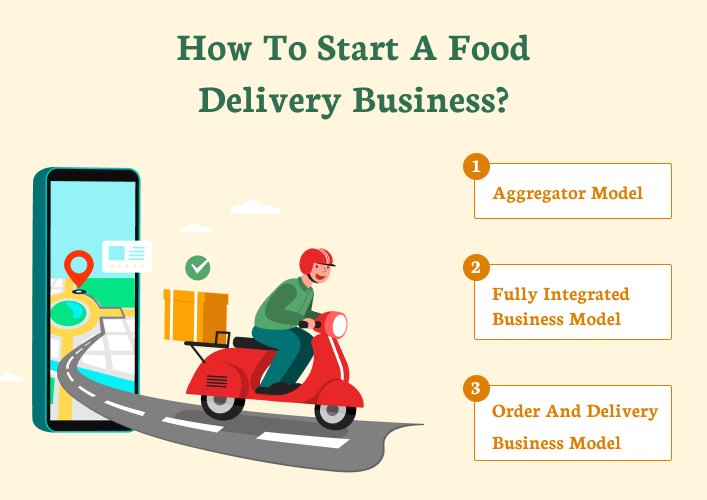Is it Worth Investing in a Food Delivery Business?
There has been an explosive expansion in the meal delivery market, and it appears to have no end in sight. Furthermore, strong demand exists due to the rising popularity of online ordering and the convenience it provides. However, it is crucial to evaluate the extent of competition in your intended market
As per the statistics from the businesswire, in 2021, the online meal delivery market in the United States was worth an estimated $23.4 billion. By 2027, the market will be worth US$ 42.6 billion, growing at a CAGR of 10.5% between 2021 and 2027.
There are dangers and difficulties in the food delivery business, just as there are in any other industry. Extreme rivalry, client retention, operational challenges, and the possibility of problems with food quality, delivery delays, or dissatisfied customers are all factors to consider. Therefore, analyze the dangers and think of ways to lessen them.
How To Start A Food Delivery Business?

First things first: figure out what kind of food delivery business model would work best for your company. Here are a few examples:
Aggregator Model
This style of doing business involves the delivery of meals over the Internet along with a platform that serves as a link between users and restaurants. Restaurants may post their meal delivery services on apps and interact with clients. The proprietors, on the other hand, oversee the delivery services directly. Receiving consumer orders and delivering them to the restaurants is the only job of your on-demand food delivery app development.
You may get users and eateries to sign up for your food delivery platform by launching your online food delivery app with this subscription model. This will be a more reliable choice for assuring that your business will bring in profits.
Order and Delivery Business Model
In this type of business model for food delivery, the owners of food businesses contract a delivery service provider to ensure deliveries are made in a timely and effective manner. Because they are in control of the delivery, the third-party food delivery operator decides how much money to charge for delivering orders of food.
If you own a food business and do not wish to make an investment in a delivery fleet but would like your clients to be able to get their food at their homes, then you should consider adopting this style of doing business. When it comes to delivery management, you have the option of working together with logistics providers like Swiggy and Uber Eats, among others.
Fully Integrated Business Model
You are responsible for everything, from the preparation of the dish to its transportation to the customer. Because everything will be done in-house, a significant financial commitment will be necessary. However, because you will be in charge of every stage of the process when using this model, the amount of money you make is likely to be far higher. Domino’s Pizza and McDonald’s are two companies that have used this concept with great success.
Conclusion
A thorough familiarity with the industry and the tastes of potential customers is essential to the start of a successful food delivery business. Always remember to do your research and find out who you’re trying to reach and what they like. This will allow you to better satisfy user requirements and advertising. Furthermore, providing a smooth ordering process for your consumers requires investing in a user-friendly and trustworthy food delivery app. Your business’s productivity and your customers’ happiness may both benefit from the use of technology to optimize delivery routes and set up order tracking systems.
Finally, make sure you’re always listening to your consumers’ suggestions for how to improve your services. To remain ahead of the competition, you need to be responsive to shifting market conditions and consumer preferences.
FAQs
What are some good ways to network with restaurants?
Should I develop my own food delivery app?
How can I make sure of timely food delivery?
Which marketing strategies to use to promote the food delivery business?
How to maintain food quality during delivery?
Ravi Bhojani is the Chief Marketing Officer (CMO) at Alian Software, where he spearheads the company’s marketing strategies and drives its brand presence in the competitive IT services landscape. With over a decade of experience in the technology and marketing sectors, Ravi has consistently demonstrated his ability to blend innovative marketing techniques with deep industry knowledge to deliver outstanding results.